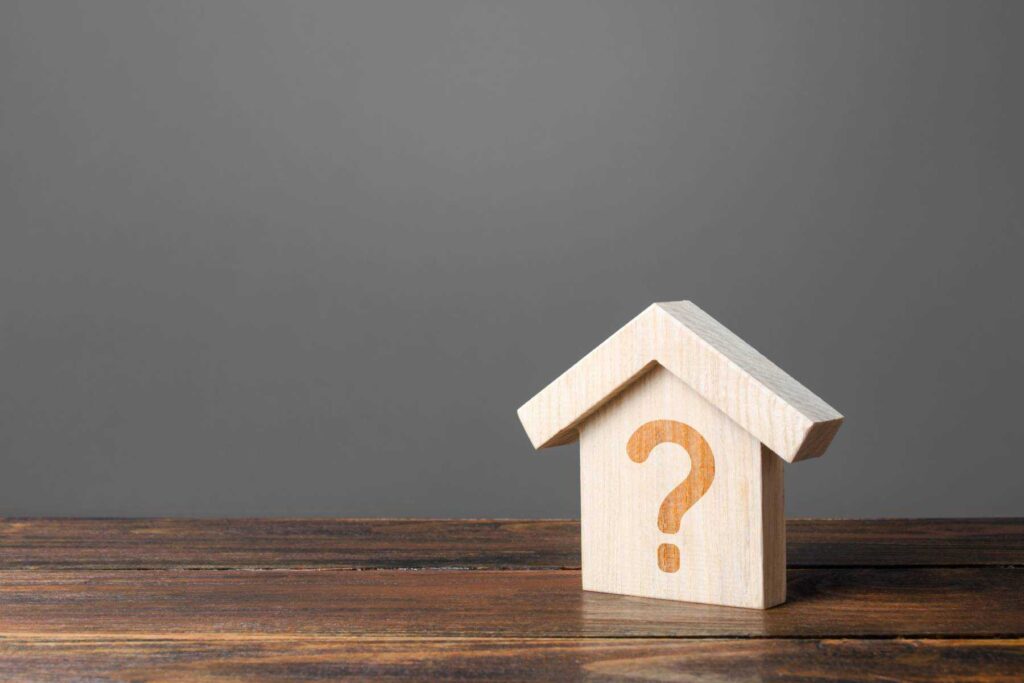Saving a deposit to buy a property is arguably the hardest part of the home-buying process for first timers.
As property prices increase, so does the amount needed as a deposit – which means, for many first-time buyers, a 5% deposit is all they can realistically raise.
Now the government’s 95% mortgage guarantee scheme is in place, there should be far more options for buyers with low deposits – here, we’ll look at the pros and cons of the scheme and high loan-to-value mortgages…
Can you buy a house with a 5% deposit?
It’s possible to buy a house with a 5% deposit.
However, the smaller your deposit, the less equity you have in your property.
That means if property prices fall, you could be at risk of what’s known as ‘negative equity’.
Can I get a mortgage with a 5% deposit?
You can get a mortgage with a 5% deposit, but 95% mortgages are not as readily available as mortgages for those with much larger deposits.
You’ll also pay a higher interest rate when taking on a 95% mortgage.
Can first-time buyers get a 95% mortgage?
For first-time buyers, a 95% mortgage is often the only way they can get on the property ladder.
Those mortgages are available for first-time buyers, but the coronavirus pandemic saw many lenders pull their 95% loans from the market – meaning there have been far fewer options for first-time buyers.
Now, though, the government has launched its mortgage guarantee scheme in a bid to encourage lenders to offer more 95% mortgages to buyers with smaller deposits.
What is the 5% deposit scheme?
The 95% mortgage guarantee scheme launched by the government in the spring 2021 Budget came on the back of almost all lenders withdrawing their 5% deposit loans from the market due to the pandemic.
The mortgages on offer under the scheme won’t look any different to buyers, but the government guarantee applies to the portion of the mortgage over 80% – meaning lenders can recoup some of their losses should your property need to be repossessed.
5 pros of the 5% deposit scheme
1. You don’t need as much of a deposit
By borrowing 95% of your property’s value through a mortgage, you’ll only need to put down 5% as a deposit.
As saving a deposit can be tough, this gives first-time buyers more of a chance to buy their own home.
For example, if you’re buying a property for £150,000 with a 95% mortgage under the guarantee scheme, you’d need to stump up £7,500 – compared with £15,000 if you were buying with a standard 10% deposit.
2. You may be able to buy sooner
Property prices in the UK grew by 7.5% in 2020, despite the impact of the pandemic and have been steadily on the rise since the tail end of the financial crisis in 2009.
That means if prices continue on an upward trajectory, the chance of homeownership will continue to edge away from many first-time buyers.
The introduction of the 95% mortgage guarantee scheme could mean you’re able to buy sooner, rather than being forced to wait and look on as prices increase further.
3. Interest rates are at current record lows
The Bank of England’s base interest rate remains at a record low of 0.1% at the time of writing, meaning borrowing has never been more affordable for those looking to buy a property. While you’ll pay a higher interest rate on your 95% mortgage than you would on one with a lower loan-to-value, mortgage interest rates are lower now than they have been previously.
So, being able to buy sooner thanks to the introduction of the guarantee scheme could mean you’ll pay a lower interest rate now than you would in the future.
With the stamp duty ‘holiday’ still in place, too, you could also save money by buying now rather than waiting.
4. It could keep the market buoyant
Spring is a busy time for property, and according to Rightmove, two of every three properties on the market in March were sale agreed – sparking the strongest seller’s market for 10 years and a large lack of supply against demand.
With more first-time buyers able to buy thanks to the mortgage guarantee scheme, sellers who own homes within reach of first timers could be more tempted to sell and trade up, meaning more properties coming to market and more choice.
5. You can fix your payments for five years
With interest rates at record lows due to the pandemic, there is a school of thought that suggests the only direction rates can head in is up.
So, if you’re thinking of taking out a 95% mortgage, a fixed-rate loan can provide you with peace of mind that your monthly repayments won’t change for a period of time.
The good news is, under the 95% mortgage guarantee scheme, lenders must offer at least one five-year fixed rate product to buyers.
5 cons of the 5% deposit scheme
1. You’ll pay a higher interest rate
Because lenders are taking on more risk when they loan you 95% of your property’s value as a mortgage, you will pay a higher interest rate compared with those offering a bigger deposit. That means your property will essentially cost you more than if you were to put down a 10% or 15% deposit.
2. There’s more risk of negative equity
Because you’ll only have a 5% stake in your home when buying with a 95% mortgage, you might be at risk of negative equity.
Negative equity is the scenario where your home is worth less than the mortgage secured on it – and can occur if property prices fall.
For example, if you buy a property for £150,000 with a 95% mortgage, your mortgage will be worth £142,500.
If your property’s value drops by 8% in your first year of ownership, however, it would only be worth £138,000 – less than your remaining mortgage.
Negative equity is only an issue if you need to sell or remortgage, however, and as you pay down your mortgage over time, your stake, or equity, in your home increases.
3. Remortgaging can be harder
As you pay down your mortgage, the loan-to-value (LTV) on your property should decrease.
If your home rises in value, too, this will happen quicker.
However, when you start with a 95% mortgage, it may take you longer to bring that LTV down low enough to qualify for more competitive rates when you come to remortgage.
And if your property has dropped in value and you’re in negative equity, you may not be able to remortgage at all, meaning you’ll be stuck on your lender’s more expensive Standard Variable Rate (SVR).
4. It may be harder to be accepted by a lender
Although the 95% mortgage guarantee scheme should mean a rise in the number of 5% deposit loans available, you’ll still have to pass lender’s strict affordability tests to obtain your mortgage.
As the lender is taking on more risk by loaning you 95% of the value of your home, they’re likely to be fussier about your credit history and more stringent on affordability.
To give yourself the best chance of being accepted for a 95% mortgage, you should:
• Ensure your credit history is clean
• Try to pay off any debt before applying
• Speak to a mortgage broker and get independent financial advice
5. You may be at risk of overstretching yourself
Although you’ll have to pass your lender’s affordability tests in order to get a 95% mortgage, you could still be overstretching yourself.
While the lender’s tests will factor in your income and some stress tests so they can decide if your loan is affordable, if your circumstances change in the future, you could find yourself struggling to pay back a large mortgage.
Other options to buy with a 5% deposit
As well as the 95% mortgage guarantee scheme, first-time buyers also have other options when it comes to buying their first home.
Help to Buy equity loans
A Help to Buy equity loan sees the government lend you 20% (40% in London) of your property’s purchase price, with you putting down a 5% deposit and the remaining 75% (55% in London) covered by a mortgage.
Equity loans track the value of your property, so if its value goes up or down, so does the loan amount.
For example, a 20% equity loan on a property worth £200,000 when you buy it would be worth £40,000.
But if that property’s value increases to £230,000 at the time you wish to pay back the loan, you’d pay back £46,000.
Find out more
Everything you need to know about equity loans
Shared Ownership
Under the Shared Ownership scheme, buyers purchase a share in a property and then pay a reduced rent on the share they don’t own.
The deposit needed is lower as it covers only the share being purchased, while buyers can purchase additional shares and eventually own 100% of their property.




